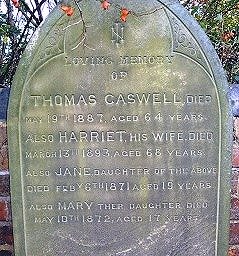


Extract from"The Blackcountry Nailer's Riots of 1842" by Arthur Willetts
Chartists continue to hold their outdoor meetings around Dudley, numerously attended by the unemployed. A meeting was held on Friday week at the Bull Ring, Sedgley. The parish constable(William Beaman) intervened at the meeting. There was powerful resistance by the mob and seven were taken into custody Thomas Caswell, Job Smith, John Jones, Edward Richards, Samuel Rawson, William Maurice and William Caswell. The lecturer, John Mason, was not arrested, but being at the hearing he was charged. All were committed to trial at the Quarter Sessions. Mason was given bail. Magistrates were Mr. Badger, Mr. Bennitt and Rev. W.H. Cartwright. (Wolverhampton Chronicle, June 15th 1842)
`Mason and his companions were committed for riot and convicted for the newfangled invention of "holding an unlawful meeting." Mason was delegated to visit Sedgley, a little Tory-ridden village in which the petty authorities had insolently and illegally threatened to arrest the first Chartist who entered the town.
There was neither riot nor disturbance until the ruffianly constable broke the peace by assaulting Mason. Mason brought up the constable for assault and the magistrates, by way of evincing their regard for the constitutional liberty of the subject, committed him and seven others for riot.
On Thursday 30th, a spy was sent to sound Mason about giving up his own defence and employing counsel. Mason said that he would sooner rot in a dungeon than give up his own defence.
On Friday evening a proposition was sent that the prosecution was willing to abandon the case against the seven, leaving Mason to answer for minor charges not mentioning what the minor offences were. They replied that they would accept if this would include Mason, otherwise they would all go to trial and sink or swim together.
Beaman, the constable, admitted that the meeting was peaceful until he pulled Mason down. He said he would arrest anyone again attempting to hold a meeting whether legal or illegal. When the case concluded, the Chairman left the Court with two jurymen and returned with one of them. The Chairman then completed summing up and after a few minutes the jury found them guilty
The Chairman complimented Beaman and said he should be rewarded. *
John Mason should serve six months in the common jail as he was the ringleader and the Chairman was determined to put down the holding of such meetings. Job Smith and John Jones were given four months; Edward Richards and Samuel Rawson three months; Thomas Caswell, William Morris and William Caswell two months.'
Note: Thomas CASWELL (1822 - 1887) was my Great Great Grandfather and is buried in the graveyard at Coppice Baptist Chapel in Hurst Hill. William CASWELL (1814 - 1871) was his older brother
 |
 |
* It appears Beaman may have been rewarded as in the 1851 Census he is shown as owning a Grocery and Drapery shop in the Bull Ring.
Chartism was a movement for political and social reform in the United Kingdom during the mid-19th century between 1838 and 1848. It takes its name from the People's Charter of 1838, which stipulated the six main aims of the movement as:
* Universal suffrage for all men over the age of 21
* Equal-sized electoral districts
* Voting by secret ballot
* An end to the need for a property qualification for Parliament
* Pay for members of Parliament
* Annual election of Parliament
Chartism was possibly the first mass working class movement in the world. Its leaders have often been described as either "physical" or "moral-force" leaders, depending upon their attitudes to violent protest.
| Search the whole Sedgley site |